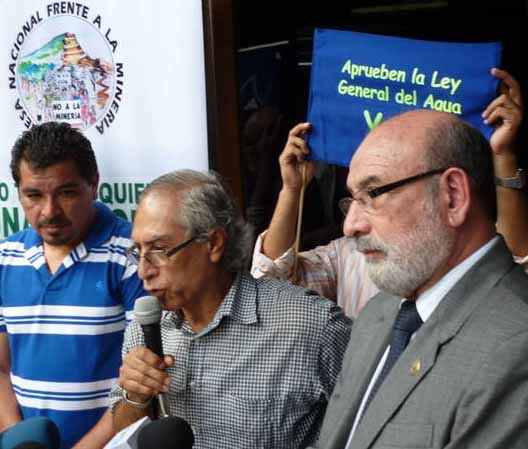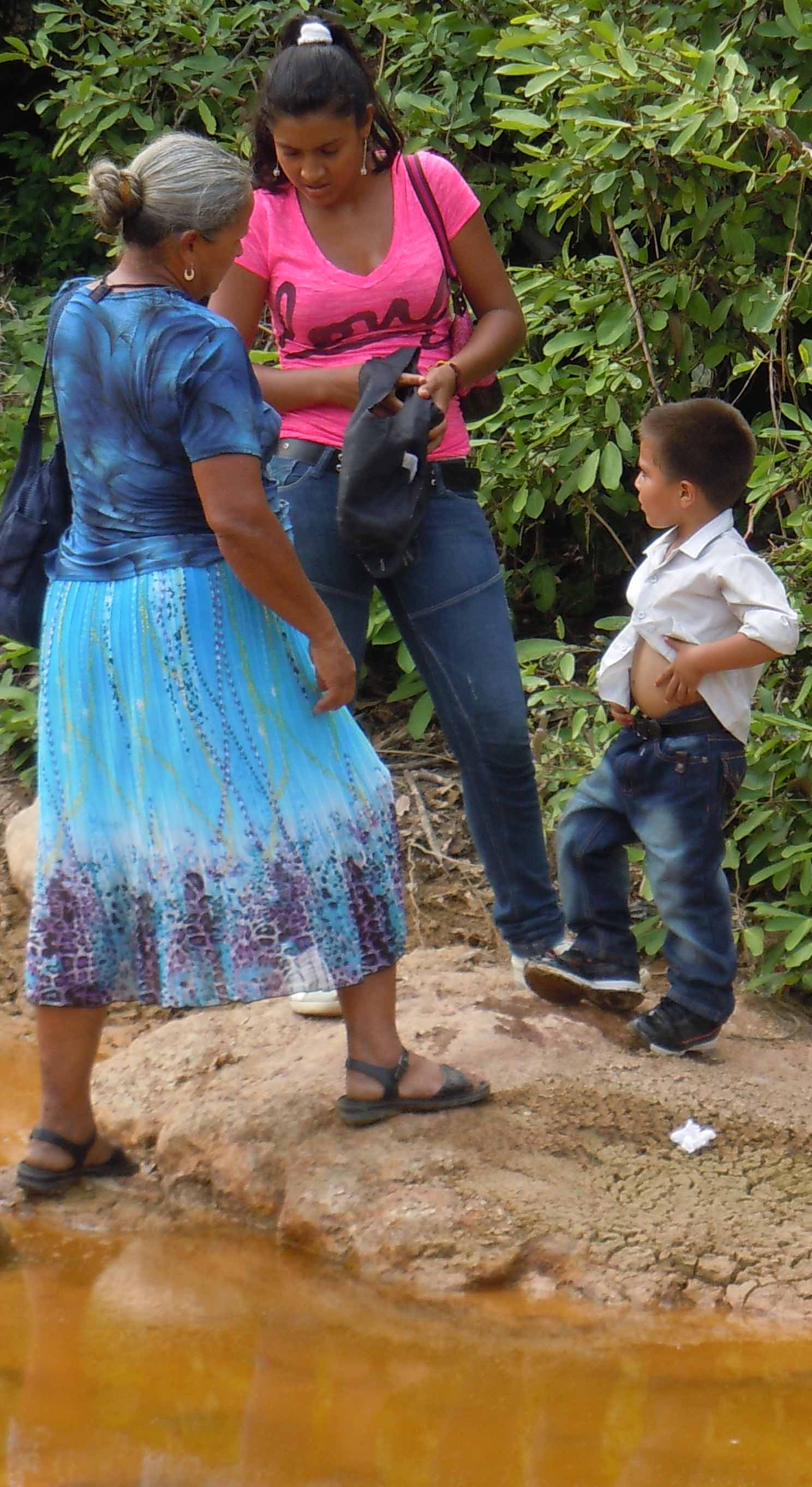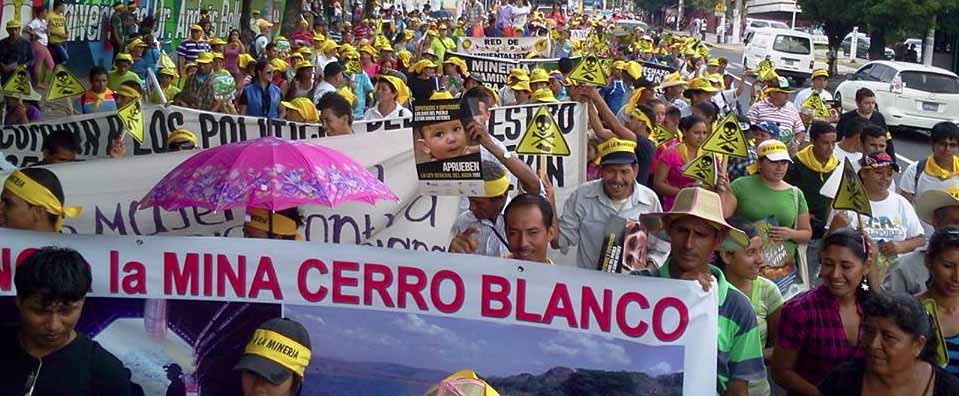Thousands of people hailing from different regions of El Salvador marched through San Salvador this morning to urge the government to stop metallic mining and to approve legislation to protect water in the country.
The Ecological Walk w as organized by a coalition of environmental and religious organizations in commemoration of World Environment Day, WED - designated by the United Nations Environment Programme in 1973 to promote awareness on the importance of preserving our biodiversity and to find ways to take corrective action on issues related to climate change, environmental degradation and sustainability. WED’s theme this year focused on reducing the amount of food is wasted around the globe.
as organized by a coalition of environmental and religious organizations in commemoration of World Environment Day, WED - designated by the United Nations Environment Programme in 1973 to promote awareness on the importance of preserving our biodiversity and to find ways to take corrective action on issues related to climate change, environmental degradation and sustainability. WED’s theme this year focused on reducing the amount of food is wasted around the globe.
In that regard the Human Rights Ombudsman of El Salvador, Dr. Oscar Luna linked the theme to the necessity of promoting changes that not only include individual behaviour but also require a multidimensional approach and shared responsibilities that go from the local to the global. “I am convinced that change generated from individual actions can reproduce itself to the point of transforming a whole society” he said. But, “there are practices and decisions at the corporate and state levels that relate to the availability of food, environmental degradation and pollution, and these are determining factors for definitive change”. According to Luna, this change is only possible with political will, compromise and the vision of a country that considers the wellbeing of current and future generations.
In a joint press conference with leaders of the National Roundtable Against Mining and the Water Forum of El Salvador, Oscar Luna  renewed his call for the Salvadoran Government to implement protections for the right of all Salvadorans to food, water and a clean environment. His speech focused particularly on the need for the Salvadoran legislature to pass number of laws, currently under debate, that are necessary to ensure these rights.
renewed his call for the Salvadoran Government to implement protections for the right of all Salvadorans to food, water and a clean environment. His speech focused particularly on the need for the Salvadoran legislature to pass number of laws, currently under debate, that are necessary to ensure these rights.
Immediate legislative action is necessary to avoid environmental disasters such as the one caused by the San Sebastian Mine in the department of La Union which is a case that is already generating contamination, negative impacts on the integrity of the environment, lack of access to food and water and on the overall health of the population, Luna stated.
The San Sebastian mine is owned by Commerce Group, a US based mining corporation, that has filed a $100 million lawsuit against the government of El Salvador under the foreign investor “protections” contained in the Central America Free Trade Agreement (CAFTA). The suit was the result of the Salvadoran government’s decision to revoke the corporation’s mining permits in 2006, following evidence that the mining project had contaminated local water with highly toxic metals. Since 2008 the office of the Ombudsman in El Salvador has followed the case and has repeatedly asked the government to take action to document contamination in the region and to seek reparation for families affected by the mine.
The message of the Human Rights Ombudsman was echoed through colourful banners and placards carried by the participants of the Ecological Walk, which according to organizers was attended by over 7000 people among students, faith groups, organized rural communities, environmental and women’s organizations.
Overe the year this walk ``has become a growing expression of the struggle against an economic system that imposes violence and hegemonic paradigms of development that do not correspond to the reality we live” read the official statement released by the organizers. Before arriving at the legislative assembly to deliver their petitions, a delegation of different representatives from social organizations also made a stop at the Guatemalan Embassy in San Salvador to ask the Guatemalan government to stop mining projects that will negatively impact Salvadoran communities due to their proximity to the border.

